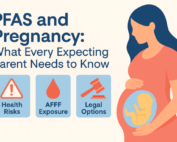In recent years, concerns surrounding per- and polyfluoroalkyl substances (PFAS) have escalated due to their persistence in the environment and potential health risks. These synthetic chemicals, often referred to as “forever chemicals,” have been linked to various health issues, including cancer, liver damage, and immune system suppression.
The discovery of PFAS in consumer products has led to numerous lawsuits, one of which involves Prime Hydration LLC, a company co-founded by popular YouTubers Logan Paul and KSI. This article provides a detailed summary of the lawsuit, focusing on the claims made by the plaintiff, the defense from Prime Hydration, and the implications for consumers.
Background of the Case
Plaintiff: Elizabeth Castillo, a resident of Salinas, California, filed the lawsuit individually and on behalf of all others similarly situated.
Defendant: Prime Hydration LLC, a company known for producing sports hydration drinks, founded by Logan Paul and KSI.
Case Summary: The lawsuit accuses Prime Hydration LLC of misleading consumers by marketing its sports drink as a healthy product, despite containing PFAS, which are harmful to human health.
The Allegations Against Prime Hydration LLC
The lawsuit claims that Prime Hydration LLC’s marketing of its sports drink, specifically the Grape Sports Drink, is misleading due to the presence of PFAS.
PFAS are synthetic chemicals that persist in the environment and accumulate in the human body, leading to potential health risks even at low levels. The plaintiff, Elizabeth Castillo, alleges that Prime Hydration LLC’s failure to disclose the presence of PFAS in their products constitutes false advertising, breach of warranty, and violation of consumer protection laws.
Plaintiff’s Claims
- False Advertising: The plaintiff argues that Prime Hydration LLC’s labeling and marketing of the sports drink as a healthy hydration option is deceptive. The product is advertised as containing beneficial ingredients like antioxidants, electrolytes, and vitamins, without mentioning the presence of harmful PFAS.
- Breach of Warranty: The lawsuit claims that the defendant breached implied warranties by selling a product that is not fit for its intended purpose. The presence of PFAS makes the sports drink unsafe for consumption, contradicting the company’s claims of health benefits.
- Violation of Consumer Protection Laws: The plaintiff contends that Prime Hydration LLC’s actions violate the California Consumer Legal Remedies Act (CLRA) and the Unfair Competition Law (UCL). The lawsuit highlights that the company’s omissions and misleading representations about the product’s safety have caused economic harm to consumers.
The Defense from Prime Hydration LLC
While the lawsuit is still in its early stages, Prime Hydration LLC is expected to mount a defense against the allegations. The company might argue that the levels of PFAS in their products are within acceptable limits or that the presence of PFAS was unknown and unintentional. Additionally, they could challenge the plaintiff’s claims of economic harm and argue that the product’s marketing was not misleading.
The Health Risks of PFAS
The lawsuit emphasizes the potential health risks associated with PFAS exposure. According to scientific studies, PFAS have been linked to a variety of health issues, including:
- Cancer: Certain types of PFAS, such as PFOA and PFOS, have been associated with an increased risk of kidney and testicular cancer.
- Liver Damage: PFAS exposure can lead to elevated liver enzymes and other signs of liver damage.
- Immune System Suppression: PFAS may weaken the immune system, reducing the effectiveness of vaccines and increasing susceptibility to infections.
- Reproductive and Developmental Issues: PFAS exposure has been linked to reduced fertility, developmental delays in children, and pregnancy complications.
- Endocrine Disruption: PFAS can interfere with hormone function, leading to thyroid disorders and other endocrine issues.
Proposed Classes in the Lawsuit
The lawsuit seeks to represent two classes of consumers:
- Nationwide Class: This class includes all individuals who purchased the Prime Hydration Grape Sports Drink in the United States for personal, family, or household use.
- California Class: This class is specific to consumers in California who purchased the product under similar circumstances.
The plaintiff argues that both classes have suffered economic damages due to the misleading marketing and the undisclosed presence of PFAS in the sports drink.
Class Action Lawsuit vs. Mass Tort Lawsuit
One critical aspect of the lawsuit against Prime Hydration LLC is that it is a class action lawsuit rather than a mass tort. Understanding the difference between these two types of legal actions is crucial, especially when considering the potential outcomes and settlement amounts.
What is a Class Action Lawsuit?
In a class action lawsuit, a group of people collectively bring a claim to court. This group, or “class,” typically consists of individuals who have experienced similar harm (typically a small economic harm) due to the defendant’s actions. In this case, the class action is brought on behalf of all consumers who purchased Prime Hydration’s sports drink and were misled by the company’s marketing, which did not disclose the presence of PFAS.
Class actions are typically filed when the damages suffered by each individual are relatively small, making it impractical for each person to file an individual lawsuit. The goal of a class action is to allow a large group of people to seek justice collectively, often resulting in a settlement or court decision that applies to all class members.
What is a Mass Tort?
A mass tort, on the other hand, involves multiple individual lawsuits consolidated into a single action. Unlike a class action, where all plaintiffs are treated as a group, each plaintiff in a mass tort retains their individual case. This is typically the case when the damages are significant and vary widely among plaintiffs, such as in cases involving serious personal injuries / illnesses or death.
Mass torts often arise in situations where a defective product or harmful substance causes varying degrees of harm to different people. In a mass tort, each plaintiff’s injury and the extent of their damages are considered individually, which can lead to larger, individualized settlements.
Key Differences in Settlement Amounts
The difference between a class action lawsuit and a mass tort is particularly significant when it comes to settlement amounts:
- Class Action Settlement Amounts: In a class action, the settlement is typically distributed equally or proportionally among all members of the class. Because the damages per individual are usually small, the total settlement amount, while potentially large in aggregate, is divided among many plaintiffs. This often results in smaller individual payouts. For example, in a case like this, where the harm involves economic damages due to misleading marketing, the settlement per class member might be a few dollars or other modest amount.
- Mass Tort Settlement Amounts: In a mass tort, settlements are negotiated individually, reflecting the specific injuries and damages each plaintiff has suffered. Since the harm in mass tort cases is usually more severe, such as in cases involving physical injury or illness, the settlement amounts are often significantly higher. Plaintiffs in mass tort cases may receive substantial compensation tailored to their unique circumstances that can range from thousands of dollars to millions of dollars.
Why the Prime Energy Drink Lawsuit Case is a Class Action Lawsuit
The lawsuit against Prime Hydration LLC is a class action because it focuses on the economic harm suffered by consumers due to the company’s misleading marketing and failure to disclose the presence of PFAS in its products. The lawsuit does not primarily address cases of physical injury or illness directly caused by PFAS exposure. Instead, it seeks to compensate consumers for the misleading nature of the product’s marketing, which affected all purchasers in a similar way.
By pursuing this case as a class action, the plaintiffs aim to secure a settlement or court ruling that benefits all affected consumers, ensuring that Prime Hydration LLC is held accountable for its actions. However, because this is a class action, individual payouts are likely to be lower than they would be in a mass tort case, where plaintiffs would be compensated based on the severity of their injuries. An example of a PFAS-related mass tort is the ongoing AFFF lawsuit.
Legal Implications and Potential Outcomes
The outcome of this lawsuit could have significant implications for both Prime Hydration LLC and the broader consumer market. If the plaintiff prevails, Prime Hydration may be required to reformulate its products, improve transparency in its marketing, and potentially pay damages to affected consumers. Additionally, the case could set a precedent for future litigation involving PFAS in consumer products, encouraging other consumers to file similar lawsuits.
Key Takeaways
» PFAS Contamination: Independent testing revealed the presence of harmful PFAS chemicals in Prime Hydration Grape, contradicting the brand’s healthy image and raising health concerns like cancer and liver damage.
» Health Risks: PFAS exposure, even at low levels, poses serious health risks, including cancer, liver damage, and thyroid issues, as underscored by agencies such as the EPA and CDC.
» Lawsuit Overview: Lead plaintiff Elizabeth Castillo filed a class action lawsuit against Prime Hydration LLC for misleading consumers with false health claims, seeking damages and injunctive relief.
» Logan Paul’s Involvement: As a co-founder, Logan Paul’s influence on Prime’s brand visibility is significant, and his role in addressing the PFAS contamination issue underscores the company’s efforts to maintain consumer trust.
» Marketing Transparency: The lawsuit highlights the importance of transparency and accurate representation in marketing, emphasizing the need for integrity in promoting consumer goods.
Conclusion
The lawsuit against Prime Hydration LLC highlights the growing concern over PFAS contamination in consumer products and the importance of transparency in marketing. As this case unfolds, it will serve as a critical example of how companies must balance product innovation with consumer safety. For consumers, the lawsuit underscores the importance of being informed about the potential risks associated with everyday products and the need for vigilant regulatory oversight.
This case is a reminder that while products may promise health benefits, it is essential to scrutinize the ingredients and be aware of potential risks. As the legal battle continues, both consumers and manufacturers will be watching closely to see how the courts address the complex issue of PFAS contamination in food and beverage products.






